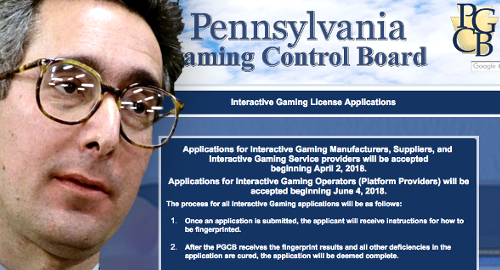 Pennsylvania casino operators had a basically flat performance in May, with both slots and table games reporting only minor improvements.
Pennsylvania casino operators had a basically flat performance in May, with both slots and table games reporting only minor improvements.
Figures released by the Pennsylvania Gaming Control Board (PGCB) show the state’s 12 licensed casino operators reported combined gaming revenue of $278.9m in May, up a modest 0.4% from the same month last year.
Slots revenue was also up 0.4% to just under $204m, led (as always) by the Parx Casino with $35.7m (+4.7%) followed by Sands Bethlehem’s $27m (+1.9%) and Rivers Casino’s $22.7m (+2.4%).
The table game scores were led (as always) by Sands, although its May total was down nearly 9.7% to $19.6m, while Parx reported its tables rising 12.7% to $16m. SugarHouse Casino ranked third with $10.1m (-11.8%).
Speaking of SugarHouse, the Philadelphia property welcomed a new general manager last week. Cheryl Duhon, who formerly managed business at Resorts Casino Hotel in Tunica, Mississippi, replaces Wendy Hamilton, who relinquished her role as SugarHouse GM in April.
BUELLER? BUELLER? ANYONE?
Pennsylvania’s casino market has seen two properties – Sands Bethlehem and Presque Isle Downs – change hands in recent months, and at least some of the interest in this market was reportedly sparked by the state’s imminent launch of intrastate online gambling operations.
However, while the PGCB officially invited casino operators to submit their online gambling license applications in April, Online Poker Report revealed last week that the PGCB has yet to receive a single application.
The delay may have something to do with Pennsylvania legislators requiring online slots operators to pay the insanely high tax rate of 54% that the state’s land-based slots operators pay. But while the land-based casinos can derive extra revenue from their slots players enjoying food, drink and other non-gaming amenities while they’re on the property, there is no similar benefit in the online realm.
As such, would-be online licensees may be waiting out the 90-day window in which the $10m fee allows online operators to offer slots, table games and poker. At the conclusion of this deadline, licenses for those products can be had on an individual basis for $4m apiece, and the growing suspicion is that interest in slots licenses will lag those other two products.
The PGCB has yet to confirm whether it has received any applications for sports betting licenses. The PGCB opened the licensing derby earlier this month but early reports had the regulator still waiting to see its first application come through the door.
Similar to the online slots issue, Pennsylvania has imposed a punitive 36% tax on betting revenue, four times the rate charged just across the border in New Jersey (where interest in betting licenses has been high). Honestly, it’s almost as if Pennsylvania really doesn’t want to see its gambling expansion plans succeed.